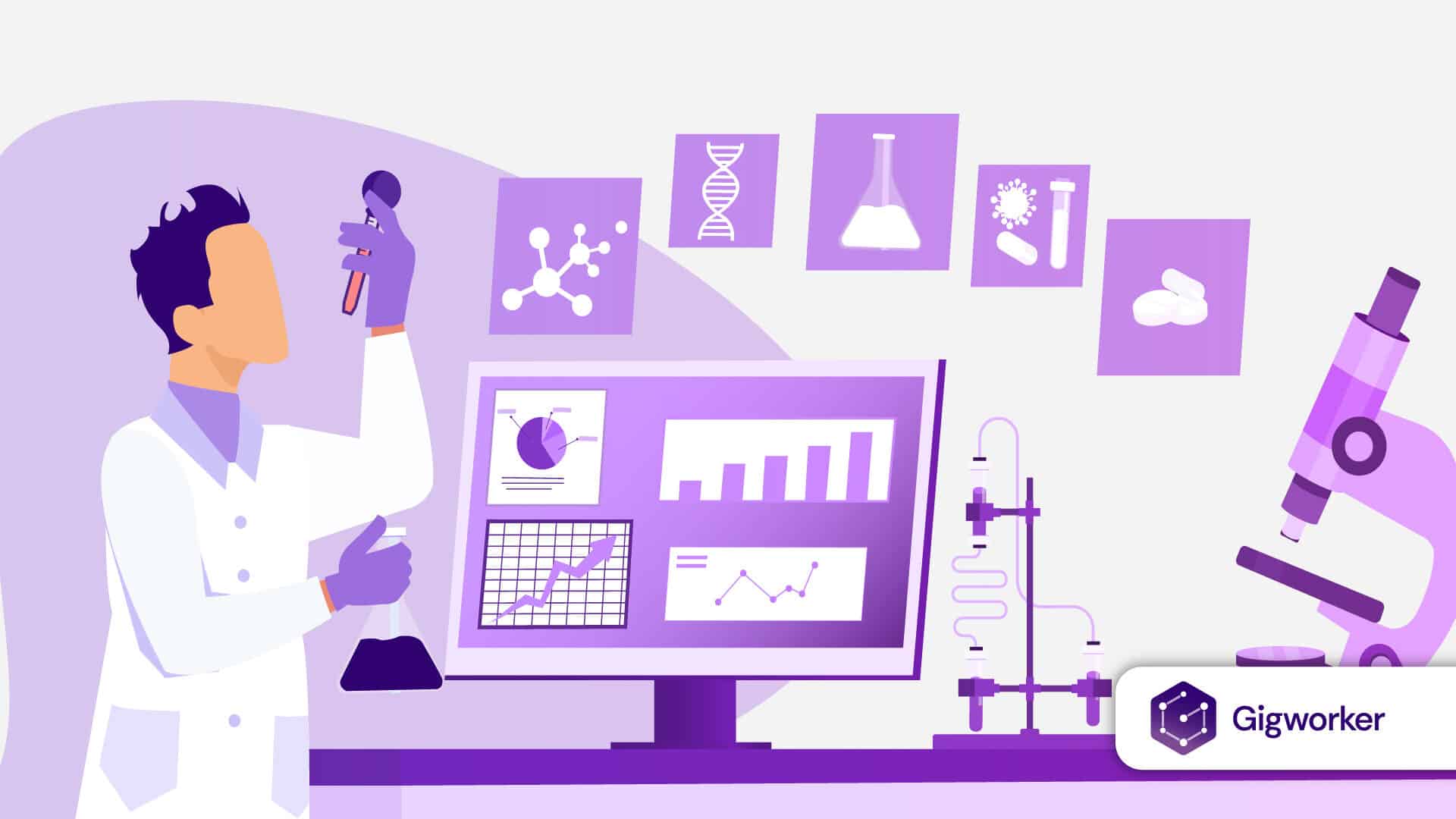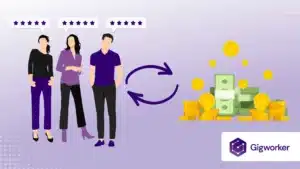There are plenty of ways to make money in your free time.
You can take online surveys, drive for Uber, or even walk dogs.
But what if you want to be part of something more meaningful?
If you’re looking for ways to make money in an impactful way, we have the perfect solution for you — paid clinical trials.
Paid clinical trials are an easy way to make money on the side with little effort.
You show up, are administered a drug or medical procedure, record your results, and get paid for your time.
Sounds simple, right?
This money-making opportunity is not only easy to do — it also provides a service to the medical field.
Through this process, you help the medical community find new treatments for conditions like infectious diseases, breast cancer, and diabetes.
In this guide, we’ll tell you all about paid clinical trials — what they are, why they’re important, and how you can sign up for a clinical trial.
You can soon be in a trial that helps improve medical practices while making some extra money at the same time.
What Are Paid Clinical Trials?
Paid clinical trials are medical studies used to advance medical practices in a selected area.
As a clinical trial volunteer, you can get paid to test new drugs, medical products, devices, or procedures.
Clinical research studies advance how doctors treat patients and administer drugs.
They help introduce new practices and groundbreaking medical technologies that can improve people’s lives and treat ailments.
Pharmaceutical companies, medical universities, healthcare organizations, and medical device companies are always on the prowl for the latest and greatest medical innovations.
Therefore, these entities will sponsor paid clinical trials to garner valuable information to develop and bring new medical innovations to the public.
Once a drug or medical product passes a series of clinical studies, it can be approved by the Food and Drug Administration (FDA).
At that point, the drug, medical device, or procedure can be used in hospitals and potentially save lives and alleviate medical conditions.
Before discussing why you’d want to join a paid clinical trial, let’s talk about why they’re important.
Why Are Clinical Trials Important?
Clinical trials aim to improve how doctors approach medical conditions and procedures.
This means evaluating the current methods of disease treatment, diagnosis, and prevention.
Medical research studies advance the medical community, explore ways to prevent diseases, and improve the quality of life for patients who have chronic illnesses.
These trials help determine if current medical practices are an effective solution for treating a medical condition.
For example, if there are many side effects associated with a certain medicine, a clinical trial can test a new medicine with fewer side effects.
If the medicine is proven to treat the condition at a much lower risk, then the new medicine can be used instead.
So, how do these trials work?
How Do Paid Clinical Trials Work?

Clinical trials are generally administered by a leading doctor interested in advancing the medical field in one particular area.
This doctor typically has a team of other doctors, nurses, medical researchers, and health care professionals.
The trial will be conducted in one of several places.
This can be either a hospital, doctor’s office, research center, or medical university.
This will all depend on the type of clinical trial you’re in.
Inpatient clinical trials will require you to be in-person at the health facility or hospital.
These trials will sometimes require you to stay overnight.
Outpatient trials will require an initial visit and screening and then multiple follow-up visits to the health facility.
The length of your trial will depend on the study.
Some may only last a few days, while others could go on for weeks or even months.
You likely won’t be the only one participating in the clinical trial.
There will be others like you who are paid to partake in the clinical trial.
Participants will be divided between a control group and a test group.
The control group won’t receive the administered treatment or drug.
Instead, they’ll receive a placebo used to make the patient feel as though they’re taking an actual medicine, when in fact they’re not.
The test group is given the actual medicine or treatment.
Once the trials are over, doctors will compare the results between the control and test groups.
There are three different phases of clinical trials that describe where a trial is at in development.
Clinical trials undergo a rigorous vetting process, testing, and experimentation.
After all, if these solutions will be used on the general population, it’s absolutely crucial to know they’re safe and potentially effective solutions.
The first phase of a clinical trial is the beginning of the process.
At this point, doctors determine the safety of the medical solution compared to a placebo.
The second phase looks to see whether or not the solution works for a particular disease or condition.
The third and final phase is used to determine details like dosage for patients and whether or not it’s the appropriate solution for patients.
The phase of the clinical trial is one of the determinants of what you’ll be paid for participation.
Let’s take a look at what clinical trials pay and the other determinants of your compensation.
How Much Do Clinical Trials Pay?
Paid clinical trials can pay anywhere from $50 to over $1,000.
Your pay will be based on how much of your time they occupy, the risk of the trial, and which medical area the trial is in.
You’ll generally be paid for every visit you make to the healthcare facility.
A good rule of thumb is the more time the trial takes, the more you’ll be paid.
You’ll also be compensated more for early phase trials.
If you participate in a phase one trial, you’ll be one of only a few patients.
When a trial is further down the road and is considered phase three, there will be more patients tested and the pay will be much less.
Early phase trials will also pay more because there is a higher risk associated with the trial.
Please note you may be at a higher risk of dangerous side effects, so contact your physician before electing to participate in a clinical trial.
However, with higher risks comes higher pay.
Your pay will also depend on how invasive the procedure or medicine is and which medical area the trial is in.
You’ll be paid more to test an invasive procedure.
You’ll also be given higher compensation if the trial is in the cardiovascular, neurology, endocrine, gastrointestinal, or blood disorder area.
Clinical trials are open to all people.
However, each trial will have its own set of requirements.
Requirements for Paid Clinical Trials
The requirements for paid clinical trials will depend on which trial you’re in, your age, location, gender, race, and medical history.
Each trial will have its own requirements for participants which will be listed before you sign up for a trial.
In many cases, trials require healthy volunteers for a control group throughout testing.
Other tests will require you to have a particular disease or condition to test the efficacy of drugs or procedures.
For example, many cancer patients will partake in clinical trials to test new drugs and procedures in hopes of finding new methods to treat their condition.
The same goes for studies testing drugs for a particular condition.
Your medical history will have to line up with the scope of the trial.
For instance, if it’s a blood pressure medicine trial, you’ll likely need to have a history of high blood pressure.
You’ll also need to meet a certain age, gender, or race.
Different medicines will be used on different categories of people.
For instance, if there is a medicine for children, it wouldn’t make sense to test it on a full-grown adult.
You can also only participate in clinical trials in your general vicinity.
It likely isn’t a good use of your time to drive across the country to participate in a clinical trial that only pays a few hundred dollars.
The requirements for every clinical trial will be listed before you sign up.
So where can you find available clinical trial opportunities?
How to Sign up for Paid Clinical Trials
The best place to find a paid clinical trial in your area is clinicaltrials.gov, where you can search through its extensive database.
This site has hundreds of thousands of paid clinical trial opportunities all around the world.
You can search for current studies based on your location, medical condition, disease, or other keywords related to a trial.
You’ll then see a long list of opportunities you can comb through.
If you click on an opportunity, you’ll be shown all the details surrounding the trial.
This includes the purpose of the trial, a summary of what the trial entails, how the study is designed, and frequently asked questions.
You’ll also be given the requirements needed to participate in the trial.
If you meet all the eligibility criteria, you can reach out to the point of contact which is provided on the trial detail page.
If you’re approved for the trial, you’ll be contacted by the trial organizer with further information regarding the next steps.
Beyond the Clinical Trials website, you can also look into other websites like the National Cancer Institute or pharma.org.
You can find clinical trial opportunities here.
However, the Clinical Trial website seems to be the best one-stop-shop for finding paid trials.
Make Money While Making a Difference
Paid clinical trials are an easy way to make some extra cash on the side.
However, they aren’t a full-time job — by no means should you quit your day job.
We see it as a great way to pad your income in your free time while also giving back in a positive way.
You never know if you’ll be part of a study that brings a new treatment to the market that changes millions of lives.
If you’re interested in other ways to make money on the side, you can look into these side hustles and other paid focus group opportunities.









